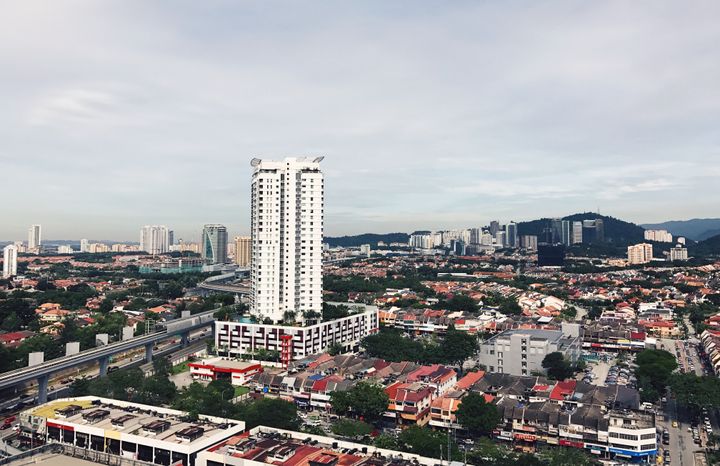Understanding the Rajasthan RERA Case: Delayed Real Estate Project and Refund Rights Explained
Discover the details of the case where the delayed "Advance Saaga Castle" project got resolved. #RealEstate #RefundRights #RajasthanRERA

In this article, we delve into the Rajasthan Real Estate Regulatory Authority (RERA) case, involving the delayed project "Advance Saaga Castle" on the Bhiwadi-Alwar express highway. The case revolves around a dispute between the complainant and the respondent, where the complainant seeks a refund due to the sluggish progress of the project. We will explore the arguments from both sides, examine the relevant documents and findings, and shed light on the authority's decision and its implications on the real estate industry.
Background of the Case
The focal point of the case is the "Advance Saaga Castle" project, promoted by the respondent, located on the Bhiwadi-Alwar express highway. The complainant booked a flat in the project on 10.11.2013 for a total sale consideration of Rs. 22.82 lakh. Initially, the complainant paid a booking amount of Rs. 2.23 lakh, followed by another payment of Rs. 1.50 lakh, totaling Rs. 3.73 lakh.
However, the project's progress was notably slow, leaving the complainant dissatisfied. The complainant made numerous attempts to request an agreement for sale, but the respondent remained unresponsive. With the promised date of possession elapsed, the complainant had no choice but to serve a legal notice to the respondent on 10.12.2018, seeking a refund of the amount paid with interest and compensation.
Arguments from Both Sides
Complainant's Argument
The complainant, represented by their legal counsel Aniruddha Sharma, claims that the respondent's project progress was at an unacceptable pace. Despite multiple requests, the respondent failed to take action to increase the pace of work or execute an agreement for sale. This led the complainant to send a legal notice seeking a refund due to the delayed possession.
Respondent's Argument
The respondent, represented by their legal counsel Advocate Unnati Vijai, admits to receiving the amount paid by the complainant. However, they contend that the complainant defaulted in payments, which allegedly deprived them of the right to seek a refund or completion of the project. The respondent asserts that the project is 65% complete and cites a court stay from the Civil Court as a reason for the delay.
Examination of Documents and Findings
Upon examining the arguments and documents, it is confirmed that the complainant's payment of Rs. 3.73 lakh to the respondent is undisputed. However, there is no signed agreement for sale between the parties. The Real Estate (Regulation and Development) Act, 2016, is relevant to the case, and it is established that the amount received by the respondent does not exceed the 10% limit set by the Act. Furthermore, all payments were made before 01.05.2017, when the Act came into force.
The respondent's claim of delay due to a court stay is disputed, as the provided stay order does not mention the project or the land specifically. Additionally, the respondent's own counsel admitted that the stay was vacated some time ago, but the project remains incomplete.
Authority's Decision and Rationale
After careful consideration of the arguments and evidence, the authority, represented by Shri Shailendra Agarwal, concluded that the delay in the project was solely the respondent's responsibility. Despite the complainant's alleged default in payments, the respondent took no action to cancel the booking or initiate a refund after deducting administrative charges.
As a result, the authority justified the complainant's right to seek a refund and directed the respondent to refund the entire amount of Rs. 3.73 lakh within 45 days from the date of the order. Additionally, the respondent was required to submit a compliance report to the authority within 15 days thereafter.
Implications and Consequences
The authority's decision has significant implications for both the respondent and the complainant. The complainant's right to seek a refund, as justified by the authority, provides a sense of relief to the complainant. On the other hand, the respondent must comply with the directive to refund the amount promptly, or face consequences in accordance with the Real Estate (Regulation and Development) Act, 2016.
Conclusion
The Rajasthan RERA case involving the delayed real estate project "Advance Saaga Castle" highlights the importance of consumer protection under RERA. The authority's decision has not only addressed the complainant's grievances but also set a precedent for similar cases in the real estate industry. As RERA continues to safeguard consumers' rights, it plays a crucial role in maintaining transparency and accountability within the real estate sector.
Note: The information provided in this article about Rajasthan Real Estate Regulatory Authority (RRERA) is for informational purposes only. It is not intended as legal or professional advice and readers should consult qualified professionals for advice specific to their circumstances. The information provided in this article is based on the Complaint No. RAJ-RERA-C-2019-2836 before the Rajasthan Real Estate Regulatory Authority
We hope you found our blog insightful and engaging! We appreciate your time and interest. If you enjoyed reading it, don't forget to subscribe to our newsletter to receive regular updates on our latest content. Visit our website www.reunionhq.in to know more.
| Assam RERA | Haryana RERA | Karnataka RERA |
|---|---|---|
| Maharashtra RERA | Rajasthan RERA | Chhattisgarh RERA |
| Gujarat RERA | Madhya Pradesh RERA | Punjab RERA |



